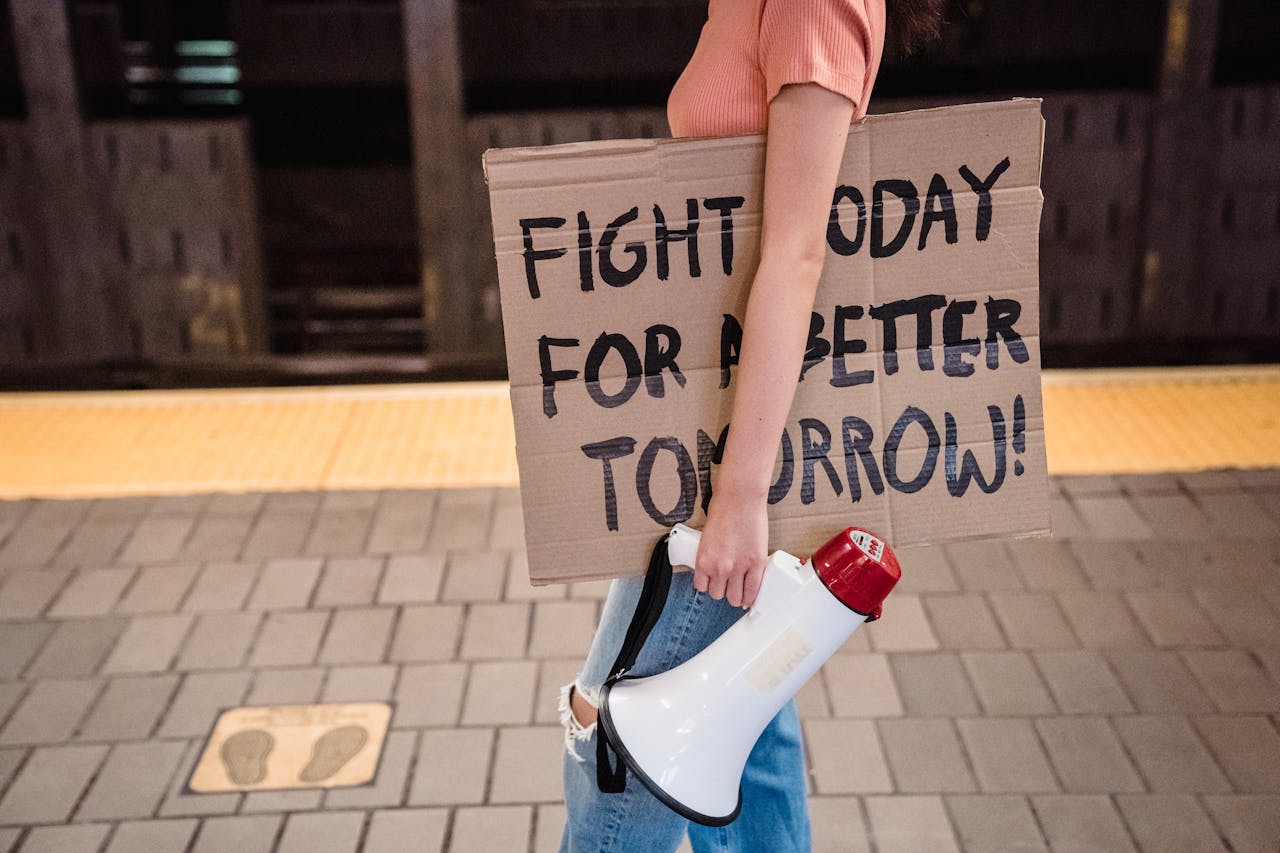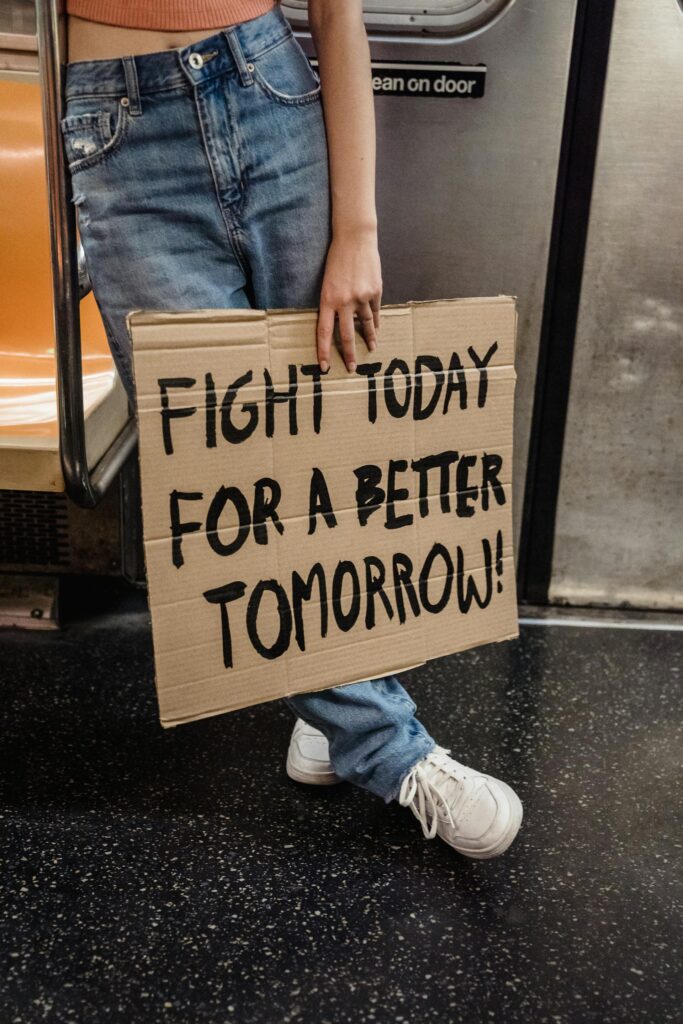Reclaiming Reproductive Rights: Youth-led action for safe abortion rights!
21st February 2025
In July 2024, abortion rights advocates from across the globe convened at the Global Safe Abortion Dialogue, a week-long online programme hosted by Amplify Change, consisting of a diverse group of global, regional and in-country abortion rights advocates who convened and organised the sessions. As part of the programme, SheDecides and Rutgers organised a session "Generation Choice". This online session brought together passionate youth advocates from around the world to demand global access to safe abortion. By highlighting the intersectional barriers that prevent many from accessing safe abortion care, this powerful event demonstrated the incredible potential of youth-led advocacy.
The Right to Bodily Autonomy and Health Equity
At the heart of Generation Choice was one clear and non-negotiable truth: controlling our own bodies is not just a right, it’s a foundational and inherent principle of gender equality. The fight for safe abortion is inseparable from the fight for bodily autonomy and health equity. Without this control, how can we talk about true equality? When we have the power to make decisions about our bodies, we can shape our lives on our own terms. This truth echoed in SheDecides’ mission, is a call to recognize safe abortion as a universal healthcare right. Acknowledging that this is a right often denied to young people and those from historically marginalized communities, even more so in the Global Majority world.

The Global Health Crisis of Unsafe Abortion
Unsafe abortion is a global health crisis, causing harm and loss of life every single year. Millions of people, especially young women, are forced to turn to dangerous, unsafe methods because they cannot access safe and legal abortion care. Sushma Shrestha from Beyond Beijing Committee Nepal shared a heart-breaking story during the session (TW: Trigger Warning) about a woman in a rural community who attempted to end her pregnancy by inserting local herbs into her uterus. She later died from heavy bleeding and a severe infection. “Nepal legalized safe abortion over 20 years ago, but women still lack access to services,” she pointed out, underlining the gap between law and reality. This reminder emphasizes that legal frameworks are useless if they’re not implemented through real access to services.
The Intersectional Challenges in Abortion Access
The barriers to accessing safe abortion are deeply intersectional. They reflect the ways that gender, economic status, culture, and race intersect to keep certain populations locked out of essential healthcare. Hayathe Ayeva, from the Mouvement d’Action des Jeunes (MAJ) in Togo, highlighted the dangers young women face when abortion is stigmatized. “When abortion is inaccessible, young girls turn to dangerous methods, inserting objects into their bodies because they don’t have the correct information,” she said. Her words underline the importance of Comprehensive Sexuality Education (CSE)—especially in conservative spaces where sexuality is taboo. CSE must be inclusive, accurate, and accessible to everyone and age-appropriate. Leila Abdulkeir Isaak from Youth Voices and Action Initiative (YVAI) in Kenya also spoke out about the stigma that isolates and marginalizes women seeking abortion care: “In East Africa, talking about abortion and sexual health is taboo,” she said, highlighting how shame and judgment can drive people away from necessary healthcare. “That’s why healthcare providers inspire me, they are the kind of support these women need.” Indeed, healthcare providers can be powerful allies in de-stigmatizing abortion and supporting people in their reproductive journeys.
Building Collective Movements for Change
For youth activists, ‘Generation Choice’ and the fight for abortion rights is part of a larger, intersectional movement. As Tamara Abracinskas from Youth Network for Abortion Rights in Latin America and the Caribbean/ YANAA stated, “We are all fighting for the same cause: legal and safe abortion for everyone. We cannot stop—we must push forward, no matter how hard it gets.” Her words are a powerful call to action, capturing the determination of young people worldwide to dismantle the barriers that prevent access to reproductive justice. Nicaise Cyrille Tchichou, from MAJ in Benin, spoke to the need for solidarity across gender lines. “You might wonder why a young man like me stands up for sexual and reproductive health rights, including abortion. It’s simple: everyone—whether man, woman, or anyone with a uterus—deserves access to healthcare.” His statement is a reminder that the fight for reproductive rights is a collective struggle for human rights, for everyone’s autonomy, health, and dignity–regardless of gender. And for everyone to speak up for those rights.
The Multi-layered Challenges to Accessing Safe Abortion
The barriers to abortion are layered and complex. Yahan Xu, a youth advocate from the International Federation of Medical Students Associations (IFMSA), pointed out, “Abortion is still restrictive in many countries, and even where it’s legal, healthcare providers often face arrest or backlash. Many hospitals aren’t equipped to provide abortion care, and there’s often no established referral system. Without these systems in place, safe abortion access becomes even harder.” These logistical and legal challenges create several barriers that prevent people from accessing the care they need. Adding to this, the stigma surrounding abortion further isolates those seeking care, leaving them vulnerable and alone in their struggle. The lack of knowledge about safe options, the scarcity of trained providers, and the looming threat of legal consequences are just a few of the obstacles that must be overcome.
Amplifying Youth-led Advocacy
To break down these barriers, youth-led advocacy is essential. Young people, particularly those from marginalized communities, are dismantling stigma and challenging oppressive systems. Sushma‘s words resonate deeply: “Abortion is not a privilege—it’s a right“. Youth-led advocacy is about uplifting young people to fight for their rights and make change from the ground up. Education is key here, as it equips individuals with the knowledge they need to challenge stigma, to advocate for themselves and their communities, and to push for policy changes that prioritize safe and accessible reproductive healthcare. Youth-driven movements around the world are showing that the fight for safe abortion is not just about legal rights, it’s also about reclaiming power over one’s own bodies and futures.

Advocacy for Government Accountability and Community Change
As the Generation Choice online session wrapped up, speakers emphasized the urgent need for government accountability and stronger community-level advocacy. Tamara called for “determination, rigor, and unity” in the fight for reproductive justice, reminding us that young people must be at the forefront of decision-making processes about their bodies and futures. Her words speak to the power of young people to lead this movement, and the necessity of youth voices in the push for meaningful policy change: “The movement for abortion rights, like feminism, is intergenerational. It is nurtured by diverse experiences and voices, and young people” Tamara said. This is especially young women and girls—are essential in leading conversations, challenging the status quo, and ensuring that reproductive rights are seen as human rights, not privileges.
Key Takeaways
Reproductive rights are fundamental human rights, and access to safe abortion is essential for achieving gender equality. Denying anyone the right to control their own body is a direct attack on their freedom and dignity. The youth activists leading this charge exemplify the strength of “Generation Choice”—a movement dedicated to ensuring that everyone, irrespective of gender, geography, or background, can decide over their body, their life, and their future. Their voices are not just calls for change; they are catalysts for justice, challenging systems of oppression and inspiring a collective fight for freedom and autonomy. By prioritizing meaningful youth engagement in this struggle, we empower a generation poised to build a world where all can live on their own terms.
Let’s rise with them.

